What is the actual cost of crime in America's largest cities—and which spend the most and least per capita?
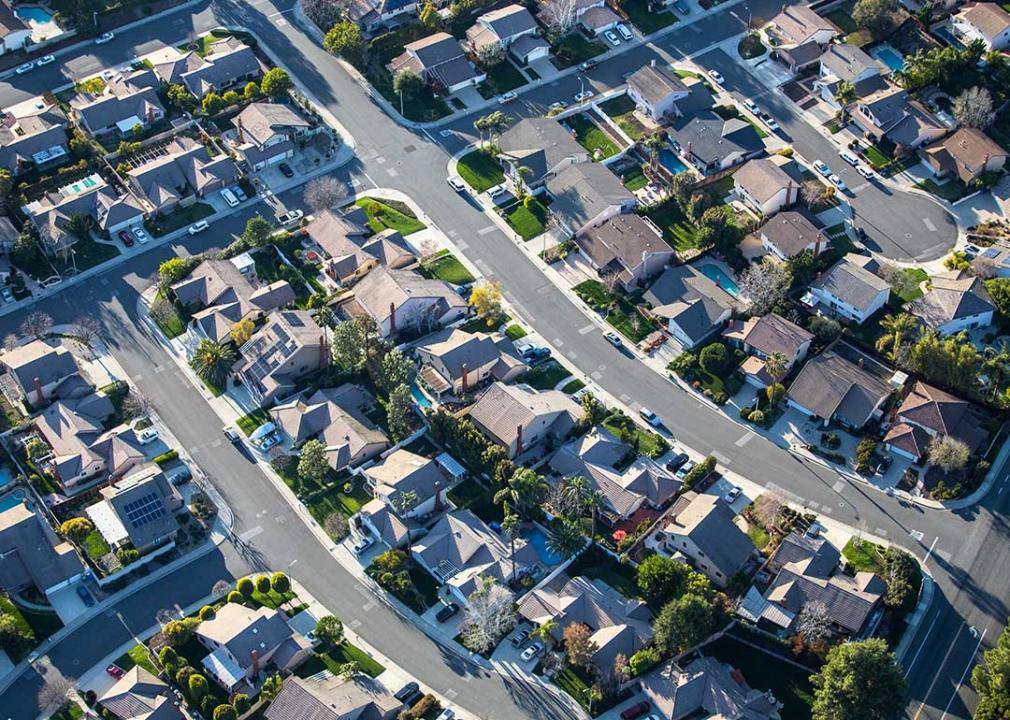
trekandshoot // Shutterstock
What is the actual cost of crime in America’s largest cities—and which spend the most and least per capita?
aerial view of Thousand Oaks
Despite progress overall, crime still impacts America’s communities. Crime and safety are intertwined with prosperity, income, and economic opportunity. Crime is costly to individual victims, perpetrators, communities, and society at large.
MoneyGeek’s annual analysis looks at the most recent crime statistics from the Federal Bureau of Investigation (FBI) to estimate the cost of crime in 302 cities with populations greater than 100,000 across the United States. The analysis pairs reported crime statistics with academic research on the societal costs of different types of crimes to estimate the cost of crime for each city. Using these same methods, MoneyGeek also found the safest small cities in the U.S. in a separate analysis.
![]()
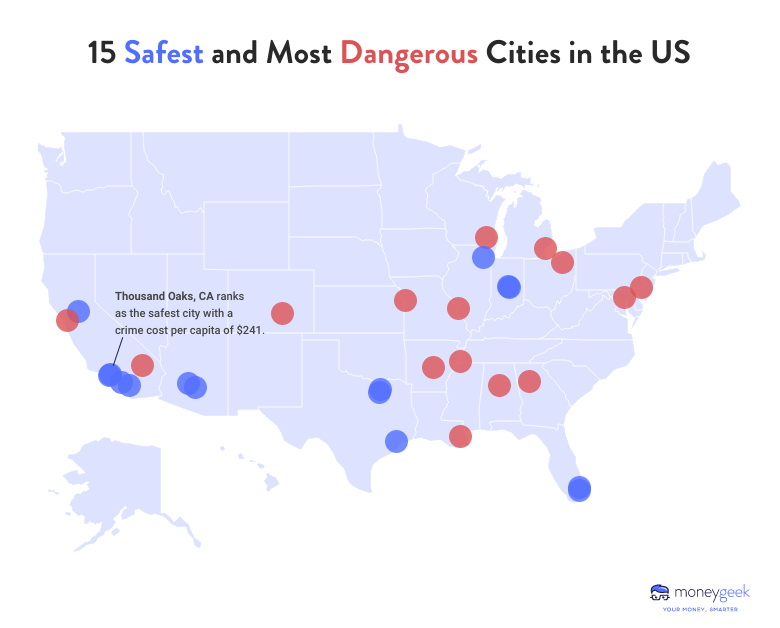
MoneyGeek
Key findings
map of US showing locations with highest and lowest costs for crime
- The cost of crime per capita in U.S. cities was $2,221 in 2022. Violent crime costs over $2,000 per capita, while property crime costs an average of $198. For context, violent crime accounted for 18.5% of all crime analyzed in this study, while property crime accounted for 81.5%.
- Thousand Oaks, California, ranks as the safest city in the U.S. ($241 per capita); Birmingham, Alabama, ranks as the most dangerous city, with the highest per capita crime ($11,392).
- In larger cities (those with populations greater than 300,000), the average cost of crime per capita is $3,325 — 74% more than the average for medium-sized cities ($1,906).
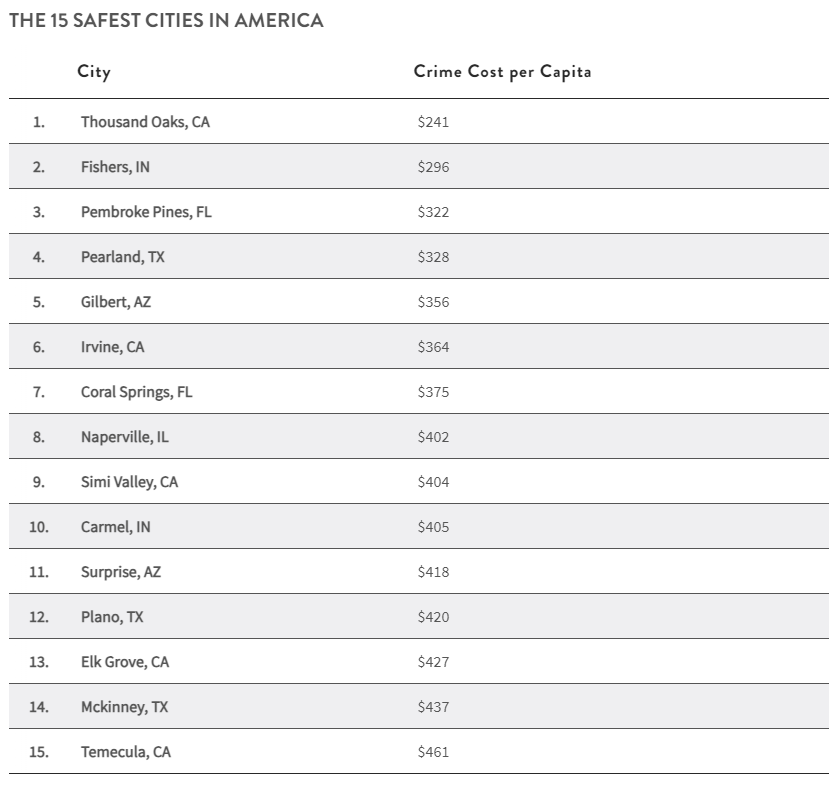
MoneyGeek
The safest cities in America
table showing the 15 cities with the corresponding lowest costs for crime in the U.S.
MoneyGeek ranked 302 cities with populations over 100,000 people from most to least safe in this analysis. The following summaries show the safest cities overall, the safest large cities and the most dangerous cities from the analysis, along with their total and per capita cost of crime.
Thousand Oaks, California, leads as the safest city in the country, with a crime cost of only $241 per capita. Following closely are Fishers, Indiana, at $296 and Pembroke Pines, Florida, at $322, ranking them in the top three for low crime costs nationwide.
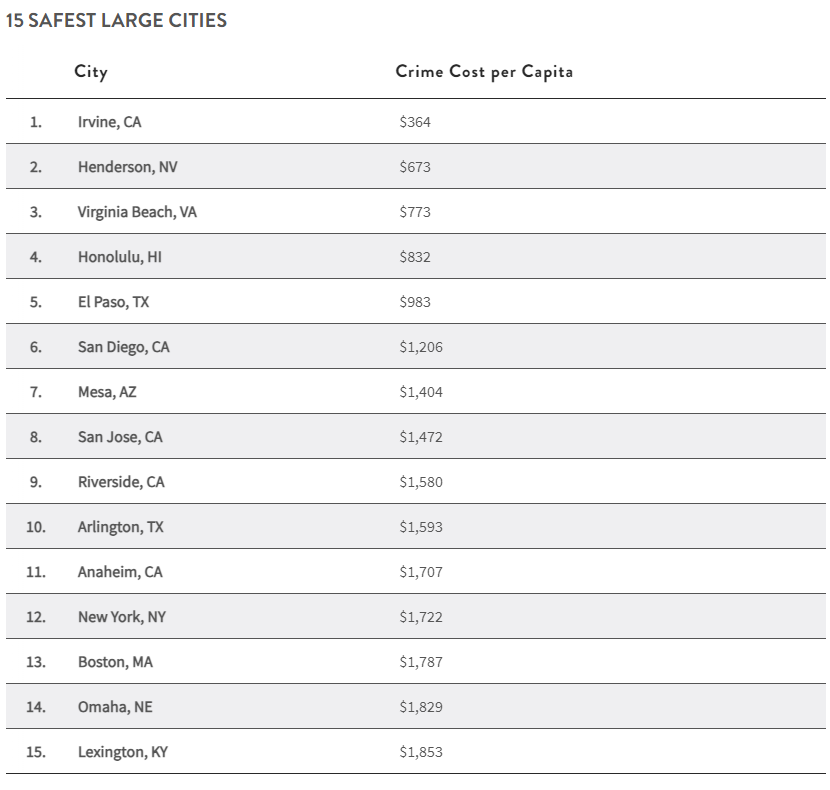
MoneyGeek
Are larger cities safer or more dangerous?
table showing cities with population of 300,000 or more with the lowest cost for crime
In our analysis, 10 out of the 15 most dangerous cities were large cities, while just one larger city (population of 300,000 or more) made the top 10 overall safest list. However, safer urban living can be found in some large cities. A standout is Irvine, California, where the crime cost per capita is $364, ranking as the No. 1 safest large city and the No. 6 safest city overall.
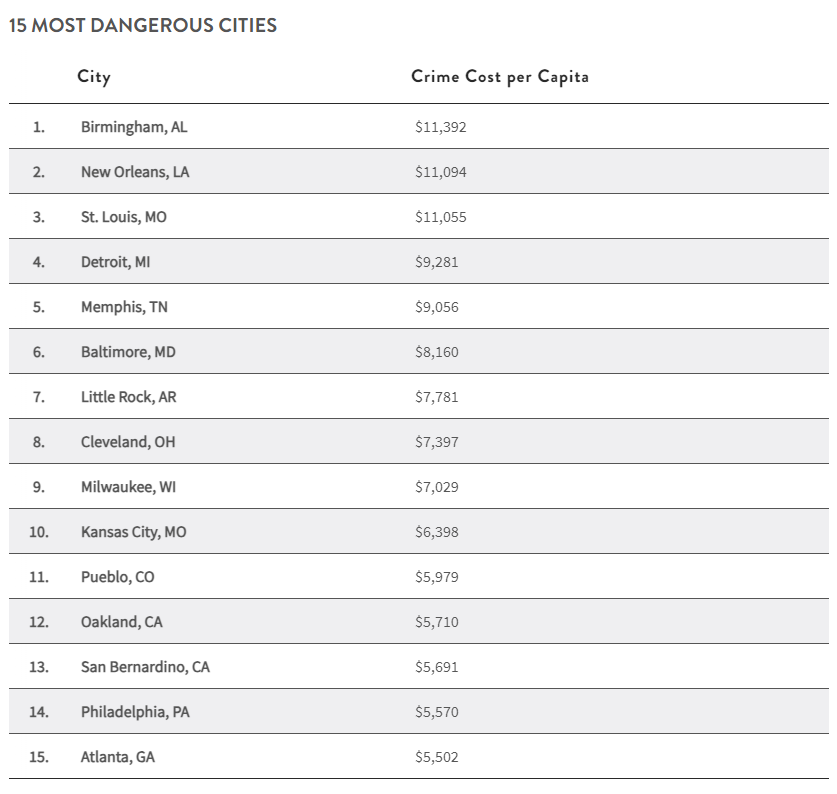
MoneyGeek
The most dangerous cities in America
table showing 15 cities with the highest costs for crime
At the other end of the list, Birmingham, Alabama, ranks as the city with the highest crime cost per capita in the U.S. at $11,392, coupled with a high violent crime rate of 1,682 per 100,000 residents. New Orleans and St. Louis follow closely, with crime costs of $11,094 and $11,055, respectively.
Safety and the cost of crime
The direct economic costs of crime to individuals and society include victim medical and mental health care needs, damage to and loss of property and police and corrections costs. Aside from the imminent danger of crime, people living in higher crime areas see depressed home values and pay higher prices for crucial needs, including home insurance, renters insurance and auto insurance.
To assess the safest cities, MoneyGeek analyzed crime data, including violent crimes such as murder, rape, and aggravated assault and property crimes such as home burglary and motor vehicle theft. Each city’s cost of crime was calculated and the cities ranked based on the cost of crime per capita. Additionally, researchers have quantified how much more violent crimes cost a community than property crimes.
While perceptions of safety are vital, crime statistics do not capture any city or community’s whole story.
“Behind all these averages that people like to cite about the crime rates in different communities are individual people and their decisions about how they choose to engage in their community,” says Jesse Bruhn, Annenberg assistant professor of education and economics at Brown University who researches education issues and inner-city gang violence. “There’s a lot more heterogeneity in these patterns that we just can’t measure.”
Despite genuine threats, Bruhn says, it may be surprising how safe people can feel in neighborhoods with high crime rates.
Methodology
To rank the safest cities in the United States, MoneyGeek started with standardized crime statistics reported to the FBI from 2022, the latest year of available data. The population of each city was added to the analysis to determine crime rates per 100,000 people, and this information was also accessed via data provided by the FBI and the Census Bureau 1-year American Community Survey.
When cities with more than 100,000 people or more did not have data available in the FBI dataset, MoneyGeek conducted individualized research on standardized crime statistics for each specific city. Please note that 2022 data was limited for cities in Florida, Illinois, Maryland, and Pennsylvania. MoneyGeek omitted any cities that did not report murder and rape.
MoneyGeek’s analysis includes 302 cities.
MoneyGeek relied on research by professors Kathryn McCollister and Michael French of the University of Miami and Hai Fang of the University of Colorado, Denver, to determine the cost of crime to society. MoneyGeek then integrated their findings into the broader dataset to better understand the societal cost of crime within individual cities.
This story was produced by MoneyGeek and reviewed and distributed by Stacker Media.
